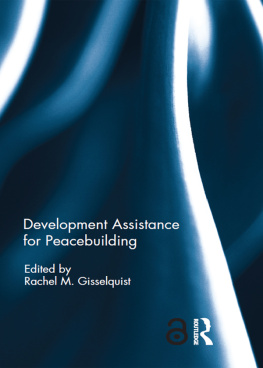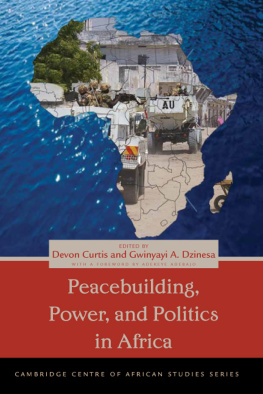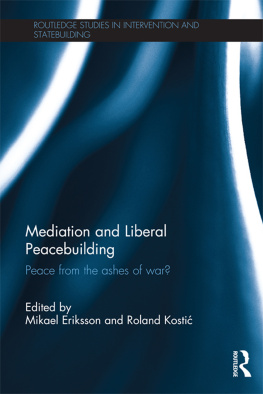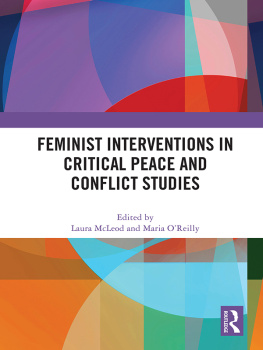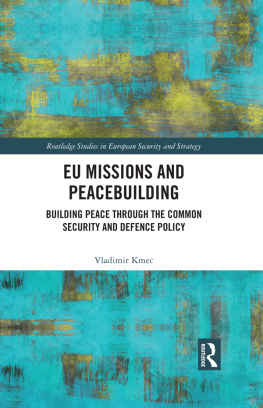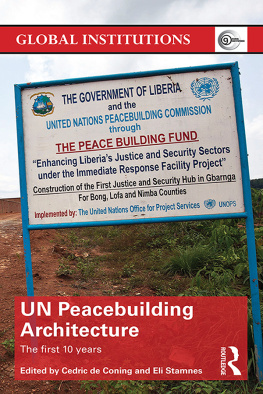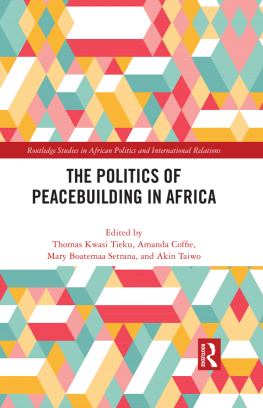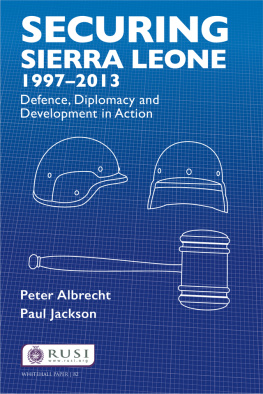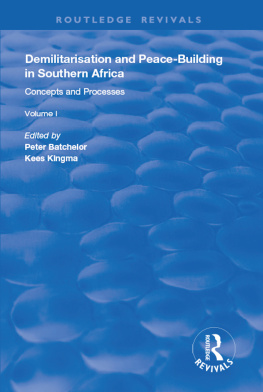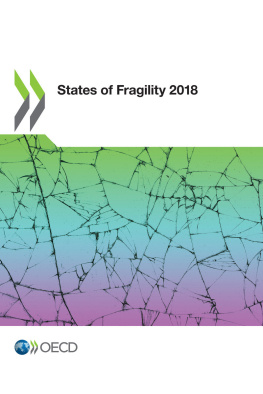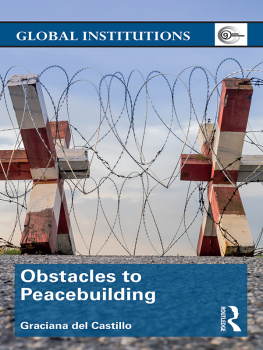Development Assistance for Peacebuilding
Development assistance to fragile states and conflict-affected areas can be a core component of peacebuilding, providing support for the restoration of government functions, delivery of basic services, the rule of law, and economic revitalization. What has worked, why it has worked, and what is scalable and transferable are key questions for both development practice and research into how peace is built and the interactive role of domestic and international processes therein. Despite a wealth of research into these questions, significant gaps remain.
This volume speaks to these gaps through new analysis of a selected set of well-regarded aid interventions. Drawing on diverse scholarly and policy expertise, eight case study chapters span multiple domains and regions to analyse Afghanistans National Solidarity Programme, the Yemen Social Fund for Development, public financial management reform in Sierra Leone, Finn Church Aids assistance in Somalia, Liberias gender-sensitive police reform, the judicial facilitators programme in Nicaragua, UNICEFs education projects in Somalia, and World Bank health projects in Timor-Leste. Analysis illustrates the significance of three broad factors in understanding why some aid interventions work better than others: the area of intervention and related degree of engagement with state institutions, local contextual factors such as windows of opportunity and the degree of local support, and programme design and management.
This book was originally published as a special issue of the journal International Peacekeeping, and is available online as an Open Access monograph.
Rachel M. Gisselquist is a political scientist and currently a research fellow with the United Nations University World Institute for Development Economics Research (UNU-WIDER). She works on the politics of the developing world, with particular attention to ethnic politics and group-based inequality, state fragility, governance, and democratization in sub-Saharan Africa. She holds a PhD from MIT, USA.
Development Assistance for Peacebuilding
Edited by
Rachel M. Gisselquist
First published 2018
by Routledge
2 Park Square, Milton Park, Abingdon, Oxon, OX14 4RN, UK
and by Routledge
711 Third Avenue, New York, NY 10017, USA
Routledge is an imprint of the Taylor & Francis Group, an informa business
2018 UNU-WIDER. Originally published as Open Access.
The Open Access version of this book, available at www.taylorfrancis.com, has been made available under a Creative Commons Attribution-Non Commercial-No Derivatives 4.0 license.
Trademark notice: Product or corporate names may be trademarks or registered trademarks, and are used only for identification and explanation without intent to infringe.
British Library Cataloguing in Publication Data
A catalogue record for this book is available from the British Library
ISBN 13: 978-1-138-08046-1
Typeset in Sabon
by diacriTech, Chennai
Publishers Note
The publisher accepts responsibility for any inconsistencies that may have arisen during the conversion of this book from journal articles to book chapters, namely the possible inclusion of journal terminology.
Disclaimer
Every effort has been made to contact copyright holders for their permission to reprint material in this book. The publishers would be grateful to hear from any copyright holder who is not here acknowledged and will undertake to rectify any errors or omissions in future editions of this book.
Contents
Rachel M. Gisselquist
Andrew Beath, Fotini Christia and Ruben Enikolopov
Lamis Al-Iryani, Alain De Janvry and Elisabeth Sadoulet
Heidi Tavakoli, Ismaila B. Cessay and Winston Percy Onipede Cole
Rauli S. Lepist, Rachel M. Gisselquist and Jussi Ojala
Laura Bacon
Martin Gramatikov, Maurits Barendrecht, Margot Kokke, Robert Porter, Morly Frishman and Andrea Morales
James H. Williams and William C. Cummings
Andrew Rosser and Sharna Bremner
The chapters in this book were originally published in International Peacekeeping, volume 22, issue 4 (August 2015). When citing this material, please use the original page numbering for each article, as follows:
Good Aid in Hard Places: Learning from Successful Interventions in Fragile Situations
Rachel M. Gisselquist
International Peacekeeping, volume 22, issue 4 (August 2015) pp. 283301
The National Solidarity Programme: Assessing the Effects of Community-Driven Development in Afghanistan
Andrew Beath, Fotini Christia and Ruben Enikolopov
International Peacekeeping, volume 22, issue 4 (August 2015) pp. 302320
The Yemen Social Fund for Development: An Effective Community-Based Approach amid Political Instability
Lamis Al-Iryani, Alain De Janvry and Elisabeth Sadoulet
International Peacekeeping, volume 22, issue 4 (August 2015) pp. 321336
Substantial but Uneven Achievement: Selected Success When Stars Align. Public Financial Management Reforms in Sierra Leone
Heidi Tavakoli, Ismaila B. Cessay and Winston Percy Onipede Cole
International Peacekeeping, volume 22, issue 4 (August 2015) pp. 337353
Embedded Assistance: Finn Church Aids Secondment in Somalia
Rauli S. Lepist, Rachel M. Gisselquist and Jussi Ojala
International Peacekeeping, volume 22, issue 4 (August 2015) pp. 354371
Liberias Gender-Sensitive Police Reform: Improving Representation and Responsiveness in a Post-Conflict Setting
Laura Bacon
International Peacekeeping, volume 22, issue 4 (August 2015) pp. 372397
Impact Assessment of the Facilitadores Judiciales Programme in Nicaragua
Martin Gramatikov, Maurits Barendrecht, Margot Kokke, Robert Porter, Morly Frishman and Andrea Morales
International Peacekeeping, volume 22, issue 4 (August 2015) pp. 398418
Education from the Bottom Up: UNICEFs Education Programme in Somalia
James H. Williams and William C. Cummings
International Peacekeeping, volume 22, issue 4 (August 2015) pp. 419434
The World Banks Health Projects in Timor-Leste: The Political Economy of Effective Aid
Andrew Rosser and Sharna Bremner
International Peacekeeping, volume 22, issue 4 (August 2015) pp. 435451
For any permission-related enquiries please visit:
http://www.tandfonline.com/page/help/permissions
Lamis Al-Iryani is Head of the monitoring and evaluation unit of the Social Fund for Development (SFD) in Yemen. She led all major internal evaluations of the SFD since 2003 and has been providing strategic, policy and operational advice to the Funds management.
Laura Bacon is Principal, Policy for the Governance and Citizen Engagement Initiative at Omidyar Network, a philanthropic investing firm. She is based in London, UK.
Maurits Barendrecht is a full professor in private law and conflict systems at Tilburg University, the Netherlands.
Andrew Beath works for the World Banks Office of the Chief Economist for East Asia and the Pacific.
Sharna Bremner is a PhD candidate in Development Studies at the University of Adelaide, Australia.
Ismaila B. Cessay is currently a lead financial management specialist of the World Bank in the Governance Global Practice.

